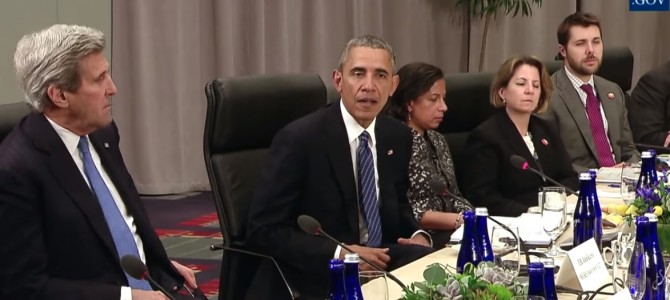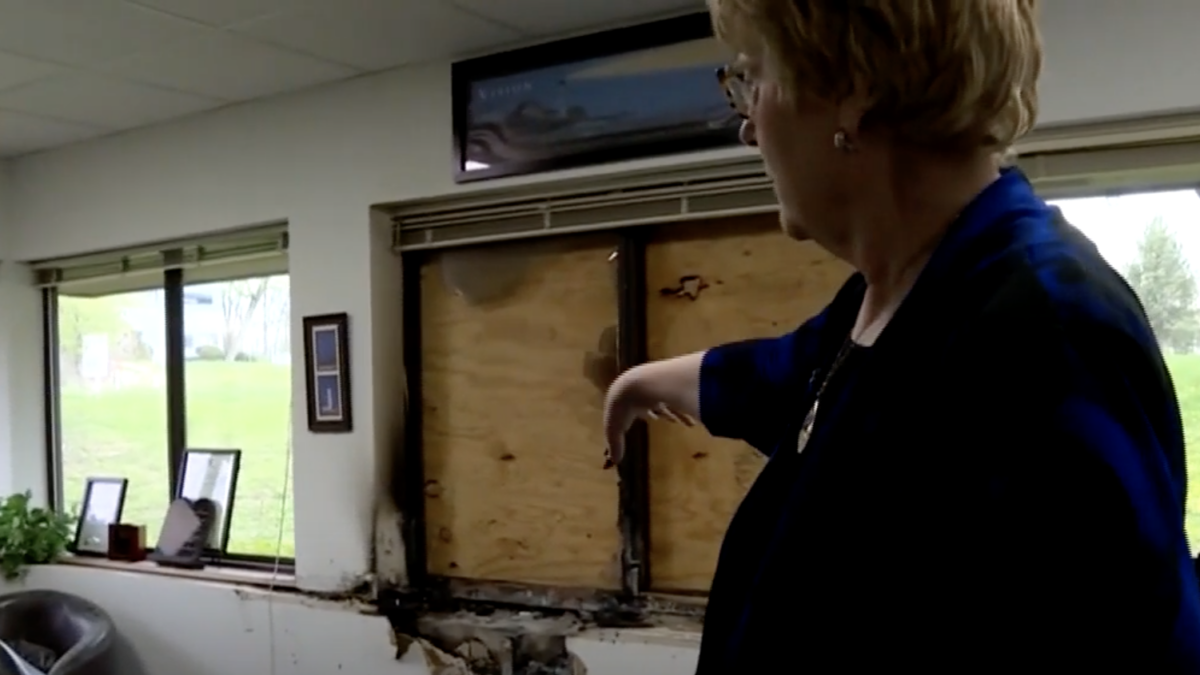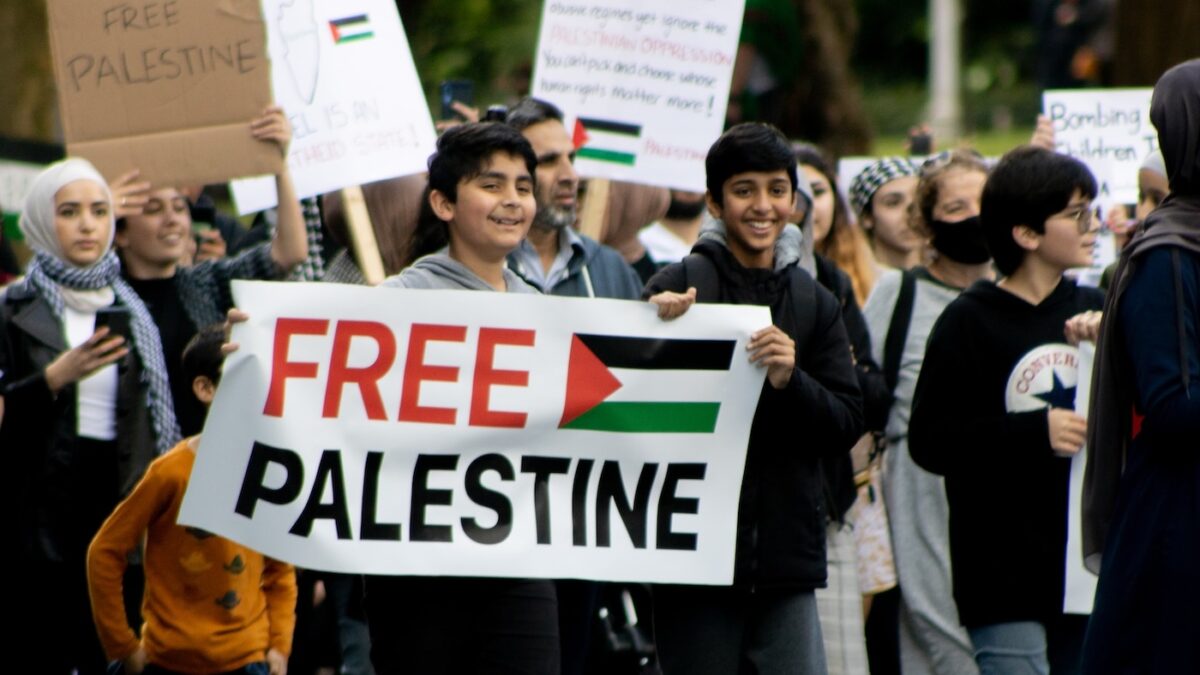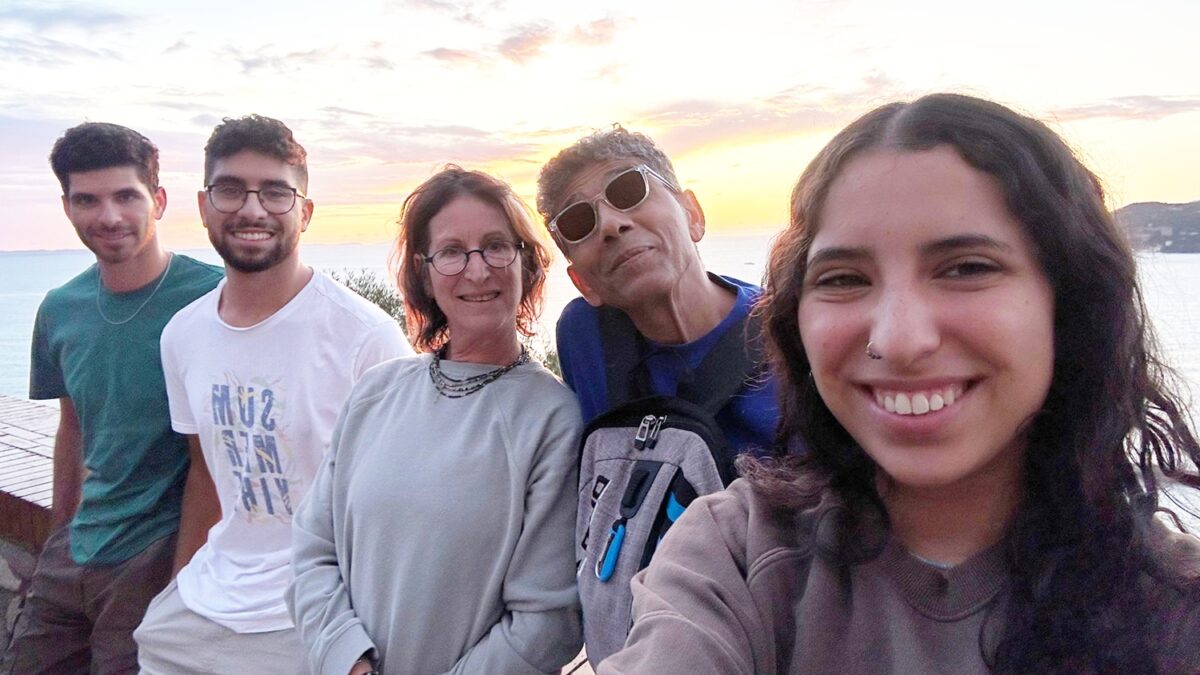
It’s no secret that President Obama has refused to use the phrase “Islamist terrorism” to describe Muslim militant groups who do violence in the name of their religion. He took a lot of heat for this linguistic side-stepping during the 2015 summit on “violent extremism” in the wake of the Charlie Hebdo terrorist attacks.
This kind of doublespeak refuses to openly acknowledge the Muslim religion, or at least a jihadist interpretation of it, as a motivating factor for terror attacks occurring globally from California and Brussels to Pakistan and Turkey.
But on Thursday, the Obama administration took things one step further. At a meeting between President Obama and French President François Hollande, the latter noted, unremarkably, that the roots of Islamist terrorism are in Syria and Iraq. The official White House video, however, cuts out Hollande’s voice and that of his interpreter when he says “Islamist terrorism” and references a coalition to act in the region.
There are four important things to take away from this brazen attempt to shelter Americans from associating Islam with violence and terrorism.
1. Censorship Is a Slippery Slope
Yes, we’ve seen Obama avoid using the phrase “Islamist terrorism” before, but this goes way beyond any previous attempts to skirt the issue with bland references to “violent extremism.” This is an effort to expel the phrase from the conversation—literally. It’s one thing to refuse to acknowledge the threat oneself, but it is quite another to suppress the speech of a foreign head of state. This is full-blown censorship.
It feels more like a cautionary tale we read in high school—more like Soviet Russia than the United States. It brings to mind the recently lifted three-year ban of YouTube in Pakistan. The ban was put in place purportedly to “protect” Pakistanis from viewing anything insulting about Islam. The real purpose was to shape the way people think. This is how censorship works.
Of course, this was always going to be the logical conclusion of Obama refusing to call Islamist terrorism by its name. It starts innocently enough, by claiming that it’s meant to spare the feelings of the Muslim community. It ends, inevitably, in censorship. Somewhere down the line, there’ll be a push for hate speech laws. This is why intellectual honesty is so important, and intellectual dishonesty so dangerous. It’s a slippery slope.
2. Ignoring Islam Makes Addressing Terrorism Impossible
Obama staunchly rejects that ISIS, al-Qaeda, or any self-professed Islamist group has anything to do with “real” Islam. One reason for this is the lack of imagination to see that these terrorists, and the communities that support them, actually believe what they’re saying.
It’s assumed that we’ve all “gotten past” religion and that no one could really believe that stuff anymore—we all know now that it’s just nonsense. Rather, these jihadists must be motivated by economic uncertainty, unfair treatment by non-Muslims, and all-around disaffection and cultural disenfranchisement. Never mind what they themselves say motivates them to commit violence.
Obama also seems to reject what most Muslims accept—that there are multiple interpretations of Islam. He treats the religion as a monolithic entity, as though there is only one “true” Islam and the rest are just fringe radicals. He calls them a “tiny faction” within Islam. This ignores the reality that many Muslims in the Middle East adhere to what Obama would call “extreme” interpretations of Islam.
Take Egypt as an example, where 74 percent of Muslims want Sharia law enforced, and of those, more than 80 percent approve of stoning for adultery and the death penalty for leaving Islam. That’s around 47,360,000 people who would stone an adulterer to death in Egypt alone. This is more than a fringe movement.
Obama’s naïveté about the connection between Islam and terrorism is dangerous because we can’t fight an enemy that we won’t even acknowledge.
3. People Notice Obama Doesn’t Take Terrorism Seriously Enough
Censoring a foreign leader’s use of the phrase “Islamist terrorism” is yet more proof that our president is not taking the threat of ISIS seriously enough (see his trip to Cuba during the Brussels attack). He’s much more concerned with being in ideological lock-step with political correctness than he is with acknowledging and combatting the global threat of Islamism.
This isn’t lost on the American people, or our allies. Imagine if President Reagan had been unwilling to utter the word “communism” during the Cold War, instead calling it “extremism.” This would have seriously undermined his efforts and our allies’ confidence in working with us. It also would have terrified the American people, signaling that their commander-in-chief doesn’t understand the fundamental beliefs that motivated our enemies in the Soviet Union.
It’s no surprise therefore, that so many people are flocking to Donald Trump, who projects strength and is willing to say uncomfortable things. Fifty percent of Americans now agree that non-citizen Muslims should be temporarily denied entrance into the United States, and 45 percent approve of waterboarding in the war on terror, both policies Trump has espoused. Maybe if our president hadn’t been so unwilling to speak plainly about Islamism, we wouldn’t be seeing such extreme reactions to it.
4. Obama Holds Low Expectations for Muslims
Obama’s fears of uttering “Islamism” alongside “terrorism” show his low opinion of people in general, non-Muslims and Muslims alike. On the one hand, he seems to view the American people as unhinged bigots, who, if they hear that Islam is associated with terrorism, will attack the nearest Muslim.
After every Islamist terrorist attack, we are told that anti-Muslim hate crimes are on the rise. Yet the rate of anti-Muslim hate crime is significantly lower than incidences of anti-Semitism in the United States. Obama underestimates the ability of the American people to handle the reality of Islam’s relationship to terrorism. He should have a little more faith.
Obama also has very low expectations for the Muslim community’s ability to react rationally to hearing world leaders point out that ISIS and their ilk are, in fact, Muslim. In his Atlantic interview with Jeffrey Goldberg, Obama says he doesn’t want to scare off “tolerant Muslims” by painting the issue with a broad brush. They, apparently, are too irrational to discern that linking Islamism and terrorism isn’t a de facto war on the imaginary monolithic Islam. He condescendingly treats them like simple-minded children who need to be protected.
In the end, Obama’s tactics didn’t work. In fact, he’s brought more attention to the matter than if he’d just not tampered with the recorded interpretation of Hollande’s remarks in the first place. The more he tip-toes around this issue, the more weight he actually gives to those words. Obama is setting a dangerous precedent of censorship and continuing a reckless pattern of underestimating the threat that Islamism poses. At least the French president seems to take things more seriously.









